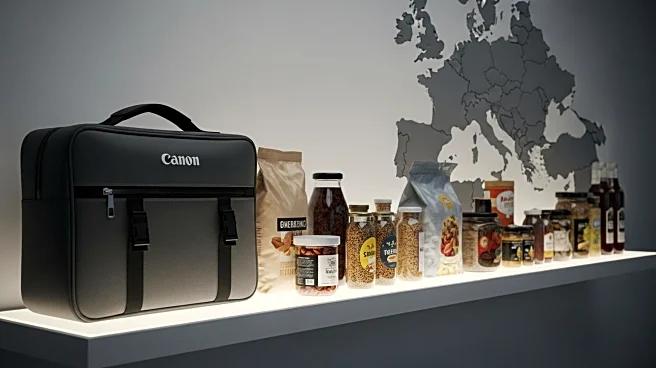What's Happening?
Finland has developed a robust crisis preparedness model that includes stockpiled food reserves and 72-hour emergency kits for households. This model is designed to ensure national stability during crises such as pandemics, cyber-attacks, or geopolitical shocks. Finland's approach is characterized by high levels of food self-sufficiency, strategic grain reserves, and strong public-private partnerships. The country produces 80% of its food domestically, supported by a network of over 40,000 farms. This system is complemented by emergency fuel reserves and a resilient food supply chain, ensuring continuity even during disruptions.
Why It's Important?
Finland's preparedness model serves as a potential blueprint for other European countries facing similar vulnerabilities. The interconnected nature of Europe's food system makes it susceptible to external shocks, as demonstrated by recent global events. By prioritizing food security and resilience, Finland offers valuable lessons in strategic planning and resource management. This approach not only safeguards national stability but also enhances public confidence during crises. As climate change and geopolitical tensions continue to pose risks, other nations may look to Finland's model to bolster their own crisis preparedness strategies.
What's Next?
European countries may increasingly adopt elements of Finland's preparedness model, focusing on enhancing food security and resilience. This could involve increasing domestic production, establishing strategic reserves, and fostering public-private partnerships. Policymakers may also prioritize household-level preparedness, encouraging citizens to maintain emergency supplies. As the climate crisis intensifies, there may be a greater emphasis on sustainable agricultural practices and innovation to ensure long-term food security. Collaborative efforts across Europe could lead to a more integrated and resilient food system, capable of withstanding future challenges.
Beyond the Headlines
Finland's approach to crisis preparedness highlights the importance of community resilience and cooperation. By involving both government institutions and individual households, the model fosters a culture of preparedness that extends beyond policy. This holistic approach underscores the need for inclusive and proactive strategies in addressing complex global challenges. As other countries consider adopting similar measures, there may be broader discussions on the ethical and social dimensions of crisis management, emphasizing the role of community engagement and shared responsibility.









